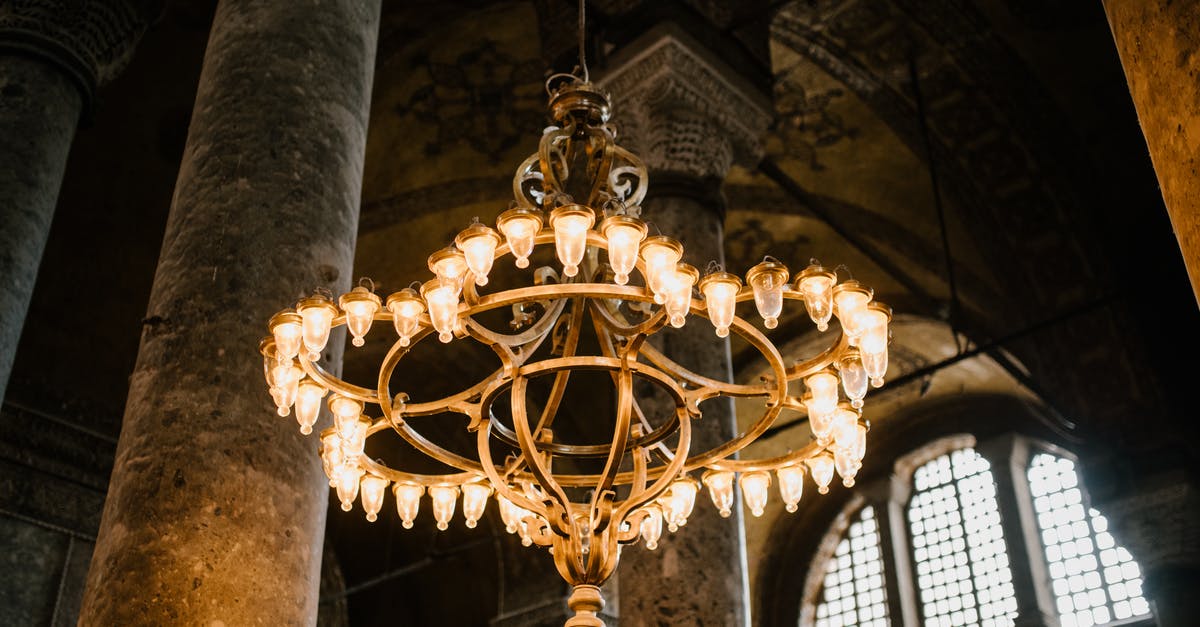Are there any retrocomputing museums in the former Eastern Bloc countries?

Before the COVID thing I was travelling in Eastern Europe and after I had to give up and come home in lockdown I got into retrocomputing channels on YouTube and started doing some coding on disk and tape formats for old 8-bit computers, all of which led me to find out that there was a whole range of locally made computers from Russia and the Eastern Bloc in the '80s and '90s. Especially clones of the British Sinclair ZX Spectrum, my first computer.
Even though I went to lots of secondhand shops in the Baltic countries, it didn't occur to me to look for old local computers, which I came to regret once I was home and found out there were ones made in countries I'd just been in, including Romania, Poland, and Lithuania.
So when this whole COVID thing hopefully recedes a bit and we can travel again I'll be heading back to Eastern Europe. Are there some computing museums over there that include local 8-bit machines such as Spectrum clones, PDP-11 clones, etc?
Anywhere from Russia to Bulgaria to Albania to Armenia, basically any of the former communist countries.
Update to focus the original intent of the question
When writing this question I didn't stop to think that one interpretation of "retrocomputing" was simply "old computers". This was silly of me and I didn't expect such a flood of answers, some of which are now getting a bit wide of the mark. I didn't intend to make a list question on all technology museums in Europe.
By "retrocomputing" I meant computers and related such as electronic games, now obsolete, from around the start of the microcomputer boom, up to around about the era of ubiquitous Wintel beige box. So this would include the 8-bit and 16-bit eras, and especially now-defunct lines.
By "Eastern Bloc" and "local" I meant basically the stuff we didn't see in the west at that time because of the "iron curtain". That would include anything totally invented in that area, clones of western tech, but even localized versions of western tech before the time western versions supported other languages out of the box. So anything modified or hacked to work with Cyrillic or accented letters would still qualify.
So big lists of computer museums located in Germany or Eastern Europe but only having an old Mac, a few old 386's, and an NES shouldn't be added. At least one local clone of an NES or Apple II that runs in Cyrillic definitely qualifies.
Basically I want to see the stuff that existed when I was growing up but would never have heard of, or would never have seen or touched even if I've heard of it.
Best Answer
Since most (all?) computer museums can qualify as retrocomputing museums, you might find this list of computer museums useful: https://en.wikipedia.org/wiki/List_of_computer_museums
You could also look at science museums and see whether they have some computer section. E.g. the large Polytechnic Museum in Moscow, Russia has a nice computer section:
The collection of computing equipment is the most comprehensive display in Russia and includes rare copyrights devices, such as automated abacus by Viktor Bunyakovsky,[4] one of the first models of Odner's adding machine, the only surviving copy of the domestic computer "Ural", hydraulic integrator by Vladimir Lukyanov,[5] the world's only computer based on ternary logic, "Syetun" and many other rarities.
From https://en.wikipedia.org/wiki/List_of_computer_museums:
Croatia:
Czech Republic
Poland:
- Muzeum Historii Komputerów i Informatyki, Katowice
- Muzeum Gry i Komputery Minionej Ery (Muzeum Gier), Wroc?aw
- Apple Muzeum Polska, Piaseczno
Russia
- Museum of Soviet Arcade Machines, Moscow
- Yandex Museum, Moscow
- Moscow Apple Museum
- Antimuseum of Computers and Games, Yekaterinburg
Slovakia:
- Computer Museum SAV, Bratislava
Ukraine:
In case Germany counts:
Germany:
- Computerspielemuseum Berlin, Berlin - Video Game Museum
- BINARIUM, Dortmund - Video Game and Personal Computer Museum[10]
- Heinz Nixdorf Museums Forum, Paderborn[11]
- Computermuseum der Fakultat Informatik, University of Stuttgart[12]
- Oldenburger Computer-Museum, Oldenburg
- Computeum, [2] Vilshofen,[13][14] with a selection from the Munich Computer Warehouse, Private Collection[15]
- Deutsches Museum, [3], Munich - Large computer collection in their Communications exhibit
- technikum29 living museum, Frankfurt - Re-opened in January 2020.
- Computerarchiv Muenchen, [4], Munich - Computer, Video Games and Magazine Archive[16]
- Computermuseum der Fachhochschule Kiel, Kiel
- de:Analog Computer Museum,[17] Bad Schwalbach / Hettenhain - Large collection of analog computers, working and under restoration.
Pictures about "Are there any retrocomputing museums in the former Eastern Bloc countries?"



Dark secrets of German museums | DW Documentary
More answers regarding are there any retrocomputing museums in the former Eastern Bloc countries?
Answer 2
There is a computer museum in Halle, Germany, formerly in the GDR. They have a lot of old computers and other devices on display from that time and place : http://rechenwerk-halle.de/usr/digital-ag/projekte/andere/museum/ or http://rechenwerk-halle.de/usr/digital-ag/RECHENWERK/index.html
If you google "Robotron museum" or "computer museum DDR" you will get a few more hits, probably all in German, though.
Answer 3
Yandex Museum, in the headquarters of Yandex -- Moscow, Timura Frunze st., 11 str. 13.
Not a very large one, but has a dozen or so of old computers, from around the world, not only from Soviet block.
Website (in Russian): https://yandex.ru/museum/
They also have a branch in St. Petersburg: https://yandex.ru/museum/spb (apparently currently closed, but to reopen in May).
Disclaimer: I am an employee of Yandex.
Answer 4
There is Apple musseum in Prague, Czech Republic. I have seen computers like 1984 year Macintosh 128k there so it should probably qualify.
Answer 5
There is a computer museum in Sigulda, Latvia.
It's a private project by a single enthusiast (known as MaiklsBlack on the net). He's been collecting devices for years and the museum has reportedly grown to 90 m^2 in size. He reports to have had over 380 old computers in 2018, about 80% of them working. His sites are only available in Latvian and Russian currently, you'll have to use a translation tool if you don't know the languages.
The sites include a catalogue of items. And it seems quite active, he has added an article just a few days ago.
The collection is not specific to local devices only, but he surely has some Soviet stuff: https://www.pchistory.lv/elektronika-mk-85-mikrokompyuter.html
Answer 6
There is a small computer museum in Brno, Czech Republic: https://www.fit.vut.cz/units/museum/.en
It focuses primarily on machines manufactured in Czechoslovakia (and some imported ones).
Also in Brno, there is an exposition in Technical museum about old computers: https://www.tmbrno.cz/en/expozice/computer-technology/
Answer 7
Hungary, Szeged.
https://ajovomultja.hu/?language=en
Some of the most interesting pieces include the first robotic animal ever constructed https://en.wikipedia.org/wiki/Ladybird_of_Szeged and the originator of the once ubiquitous 3.5" floppy drive https://ajovomultja.hu/mcd-1-casette-floppy-marcell-janosi?language=en (the English translation is atrocious).
Answer 8
Regarding Bulgaria you could visit the "National Polytechnic Museum" http://polytechnic-museum.com/. There are a mix of different technologies, a few years ago they had an explicit 'old pcs' exhibition.
Answer 9
I can recommend the computer games museum in Berlin (https://www.computerspielemuseum.de/). It is in the former GDR part of Berlin, and because you are interested in retrocomputing I'm sure you will enjoy it.
Answer 10
The Computerspielemuseum in East Berlin has already been mentioned, but there are also some old computers or reproductions (including a reproduction of one of Konrad Zuse's first computers) in the Technikmuseum in Berlin. The Technikmuseum is in the Western part of Berlin, but if you happen to be in town anyway, you should not miss it.
Dresden was the center of East German computer production, and they seem to have some examples at the Technische Sammlungen, at the Robotron museum (HT to @scai) and at the Technical University. The latter two can only be visited after making an appointment.
Hoyerswerda, where Konrad Zuse spent five years of his youth and which is reasonably close to Dresden, also has a computer museum.
Answer 11
There is The Museum of Computing and Informatics in Riga, Latvia.
To inform the society about the history and development of the computing, the Institute of Mathematics and Computer Science, University of Latvia, since 1984 houses The Museum of Computing and Informatics. It's the only museum devoted to computer science in Baltic. Museum's permanent exhibition includes a great number of the first computing and data processing devices used in Latvia as well as an interesting collection of minicomputers and early personal computers.
If you are in Riga go to flea market "Latgale" (locally called "Latgal?te"). It is possible you will find some obsolete electronics there to see or even to buy.
Answer 12
Half the answers seem to be from Bulgaria ¯_(?)_/¯
I think there was some kind of specialization between the countries and we had computing production. It didn't work well in the long term though.
Here is a video from museum in Kilifarevo for old tech, not only computers: https://bnt.bg/bg/a/retro-muzey-na-tekhnikata-v-kilifarevo
Update: I see that retro-museum in Varna also has some retro-computers https://www.facebook.com/RetroMuseumBg/posts/3282617475135933/
I watched also one guy on the television that made a museum for old computers and components. I have 2 packs of old components from the time of Pravetz or earlier that I wanted to donate him. My father worked in a computing center and had some parts leftover from there. If you are interested, write me a comment and I'll put some more effort to try to find him and give you information.
My first computer was a 16bit 8088 or 8086, probably a clone, from what I recall. But I think it is long gone for scrap.
Answer 13
There's a museum in Bulgaria dedicated to Pravets, the oldest Bulgarian-made computer. https://kiosk.dartek.bg/clients/museums/380-kiosk-pravets-museum http://pravetz.info/
Answer 14
In Romania, there is one in Arad. See:
To visit the museum, you need an appointment (set with at least a day before).
Answer 15
Today I learned that the world lost such a museum in the destruction of Mariupol during the Russian invasion of Ukraine.
Here is a 2019 Gizmodo article and video on the museum, Club 8-bit
Sources: Stack Exchange - This article follows the attribution requirements of Stack Exchange and is licensed under CC BY-SA 3.0.
Images: Julia Volk, Maria Orlova, Julia Volk, Monstera
